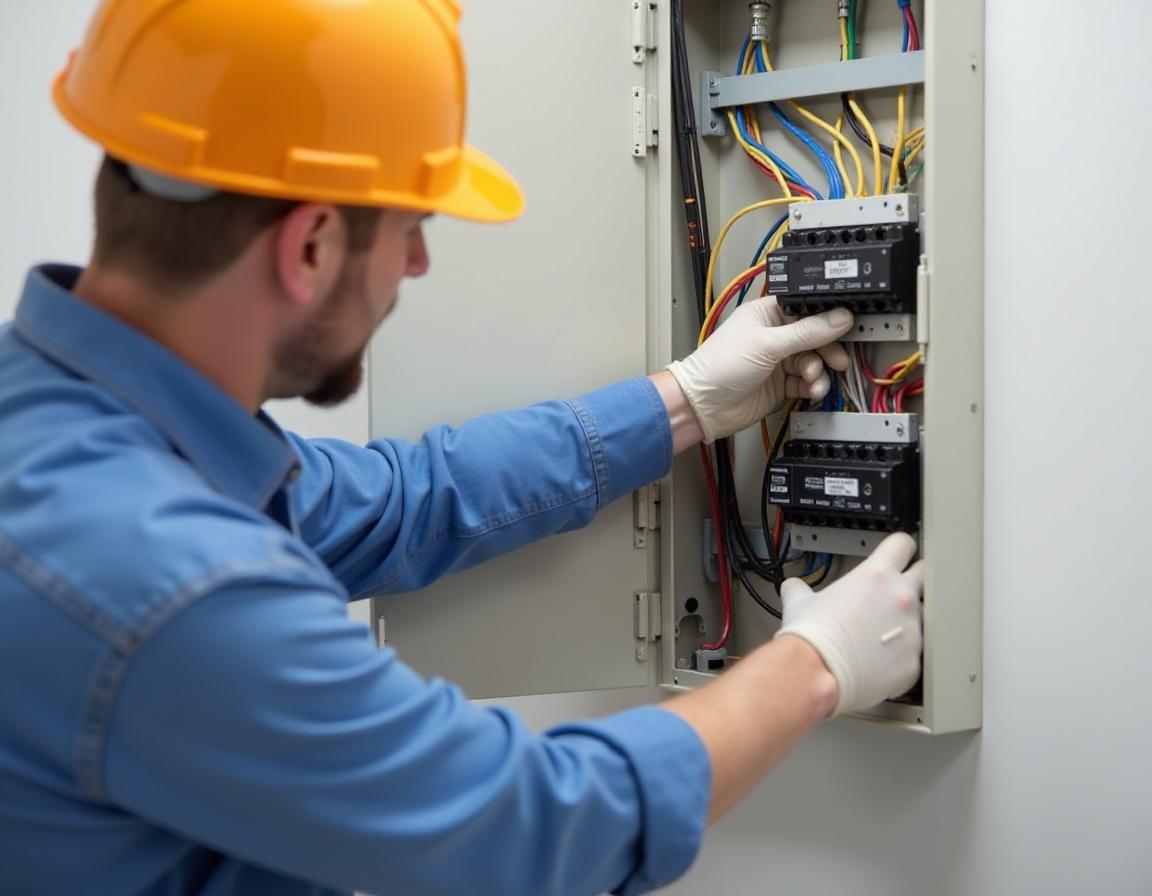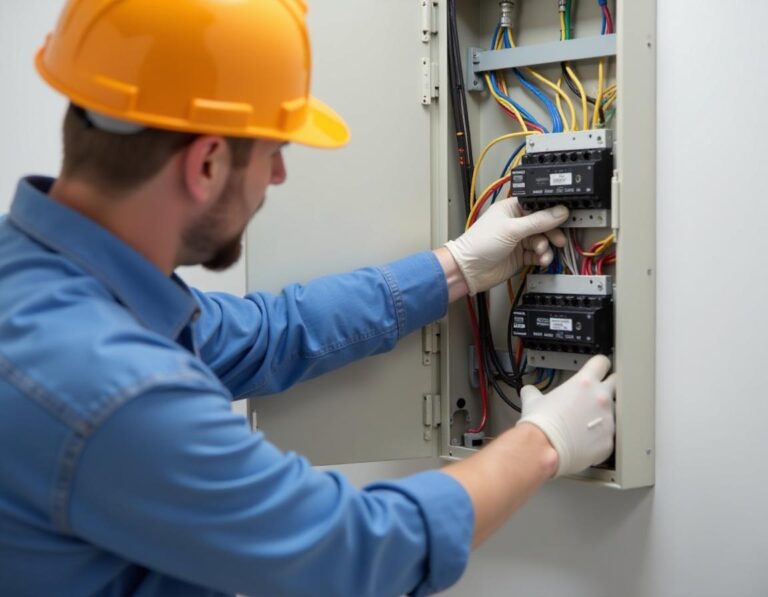Why Your Business Needs Regular Electrical Inspections
Key Takeaways:
- Regular electrical inspections help prevent potential hazards and ensure the safety of your business premises.
- Routine checks can identify and fix issues before they escalate into costly repairs or downtime.
- Inspections help in maintaining compliance with electrical codes and regulations.
- Investing in regular electrical inspections can improve energy efficiency and reduce operational costs.
The Importance of Electrical Inspections
Regular electrical inspections are crucial for maintaining a safe and efficient workplace. Electrical systems can degrade over time, leading to potential hazards that could jeopardize the safety of your employees and property. By scheduling commercial electrical services regularly, businesses can identify and address issues before they escalate into serious problems. These inspections ensure that all electrical components function correctly and comply with safety standards, reducing the risk of electrical fires and other hazards.

Early Detection of Electrical Problems
One of the primary benefits of regular electrical inspections is the early detection of potential issues. Over time, electrical components can wear out or become damaged, leading to problems such as short circuits, leaks, and inefficient energy usage. During inspections, professionals can identify these issues and take corrective measures immediately. Whether it’s faulty wiring or an overloaded circuit, addressing these problems early can prevent them from turning into costly repairs or causing operational downtime. Similarly, businesses with commercial HVAC systems can benefit significantly from combined inspections, which ensure that electrical and HVAC systems work seamlessly.
Enhanced Energy Efficiency
Regular electrical inspections can also improve your business’s energy efficiency. Electrical systems that are not functioning optimally can waste significant amounts of energy due to issues like outdated equipment or faulty wiring. These inefficiencies increase utility bills and strain your electrical system unnecessarily. During an inspection, professionals can identify areas where energy is wasted and recommend improvements. For instance, upgrading to energy-efficient lighting or replacing old wiring can save energy. In the long run, these enhancements contribute to lower operational costs and a reduced environmental footprint.
Compliance with Regulations
Businesses must comply with various electrical codes and regulations to ensure safety and operational standards. Regular electrical inspections help maintain compliance by verifying that all electrical components meet the requirements. Non-compliance can result in hefty fines, legal issues, and even the closure of your business. Moreover, failing to adhere to electrical codes can put your employees and customers at risk. Companies can ensure that their electrical systems are up to code by conducting routine inspections, avoiding penalties, and providing a safe environment for everyone.
Improved Safety and Reliability
Safety and reliability are paramount in any business environment. Faulty electrical systems can lead to accidents, injuries, and even fatalities. Regular electrical inspections mitigate these risks by detecting and rectifying hazards before they cause harm. Inspections can reveal issues like frayed wires, exposed conductors, and improper grounding, which are common causes of electrical accidents. Additionally, addressing these issues improves the reliability of your electrical system, ensuring that your business operates smoothly without unexpected power outages or equipment failures.
Cost Savings
Although it might seem like an additional expense, investing in regular electrical inspection can save your business money in the long run; identifying and addressing electrical problems early can prevent costly repairs and downtime. For example, fixing a minor issue like a loose connection is much cheaper than dealing with the aftermath of an electrical fire. Furthermore, improving energy efficiency through inspections can significantly save utility bills. By maintaining a well-functioning electrical system, businesses can avoid unexpected expenses and allocate resources more effectively.
Conclusion
Regular electrical inspections are essential to maintaining a safe, efficient, and compliant business environment. From preventing potential hazards to improving energy efficiency and ensuring regulatory compliance, the benefits of these inspections far outweigh the costs. By investing in routine electrical inspection, businesses can create a safer workplace, enhance operational efficiency, and achieve significant cost savings. Prioritizing electrical safety demonstrates a commitment to protecting your employees, customers, and assets, ultimately contributing to the long-term success of your business.
FAQ on Electrical Inspections
Why are regular electrical inspections necessary for my business?
They help prevent hazards, ensure safety, and identify issues early before they become costly.
How do electrical inspection save my business money?
By detecting problems early, you avoid expensive repairs and improve energy efficiency, lowering utility costs.
Can electrical inspection improve energy efficiency?
Yes, they identify areas of energy waste and suggest improvements like upgrading outdated equipment.
What happens if my business is not compliant with electrical regulations?
Non-compliance can lead to fines, legal issues, or business closure.
How do inspection enhance the safety of my workplace?
They detect hazards like faulty wiring or frayed wires, preventing accidents and ensuring reliability.
Are electrical inspection only for safety?
No, they also boost efficiency, ensure regulatory compliance, and save costs by preventing downtime and expensive repairs.
How often should my business schedule electrical inspection?
Regularly, based on your local regulations and the age of your electrical systems.
What are the long-term benefits of electrical inspection?
Safer workplace, lower energy bills, and significant cost savings in the long run.

